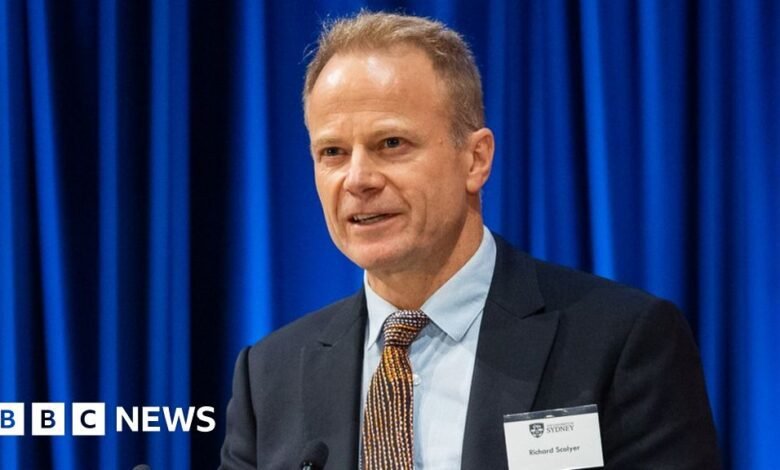Richard Scolyer: Renowned doctor remains brain cancer free after a year

In melanoma, Professor Long – herself a renowned medical oncologist – and her team have found that immunotherapy works best when a combination of drugs is used and when they are given before any surgery to remove a tumour. And so, Prof Scolyer last year became the first brain cancer patient to receive pre-operative combined immunotherapy.
He is also the first to receive a vaccine personalized according to the characteristics of his tumor, which increases the cancer detection power of the drugs.
After a difficult few months of treatment at the start of the year – spent dealing with epileptic seizures, liver problems and pneumonia – Prof Scolyer says he is feeling healthier.
“I’m better than I’ve ever felt for young people,” he said, adding that he’s back to exercising every day – which for him usually means a casual 15km (9.3 mile) run.
“This certainly doesn’t mean my brain cancer is cured… but it’s nice to know that it hasn’t come back yet, so I still have more time to enjoy my life with my wife Katie and my three wonderful children.”
The results so far have generated great excitement that the pair could be on the verge of a discovery that could one day help around 300,000 people diagnosed with brain cancer around the world every year.
Prof Scolyer and Prof Long have previously said the chances of a cure are “tiny”, but they hope the experimental treatment will extend Prof Scolyer’s life and soon translate into clinical trials for patients with glioblastoma.
They currently have a scientific paper under review, which details the results of Prof Scolyer’s first few weeks of treatment, but Prof Long emphasizes that they are still a long way from developing an approved and regulated treatment.
“We generate a lot of data to then create a foundation for the next step, so we can help more people,” she said.
“We’re not there yet. We really need to focus on showing that this type of preoperative combined immunotherapy approach works in a large number of people.”
Roger Stupp – the doctor after whom the current protocol for treating glioblastomas is named – told the BBC earlier this year that Professor Scolyer’s prognosis was “bleak” and that it was too early to say whether the treatment was working.
He added that while Scolyer’s previous results were “encouraging,” he wanted to see him reach 12 months, or even 18, without recurrence, before getting excited.
Professor Scoyler said he is already proud of the data his treatment has generated and grateful to his family and medical team for supporting “this experiment”.
“I’m proud of the team I work with. I’m proud that they’re willing to take the risk to go down this path.”
“[It] provides some hope that perhaps this is a direction worth investigating more formally.”




